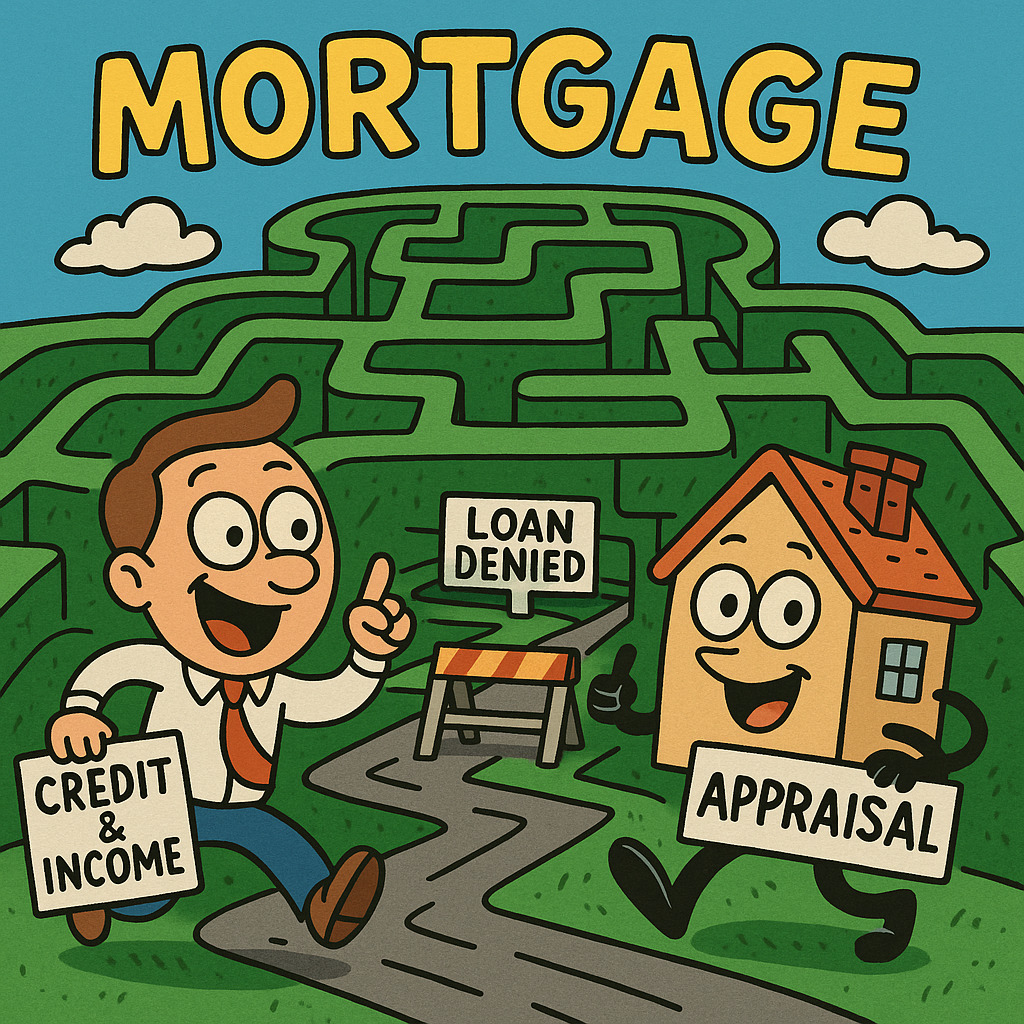
Picking the right mortgage loan type for your family is a big financial decision. Here are some things to consider about the three most popular types of mortgages and what the pros and cons and differences are between all three…
Most mortgages today are for 30 year fixed rates. There are other terms available such as 25-year, 20-year, 15 years, and even 10-year amortizing fixed-rate loans. There’s the FHA, there’s Fannie Mae, there’s Freddie Mac here’s what all the differences are and how to decipher what otherwise can be somewhat confusing. Fannie Mae and Freddie Mac simply out are government-backed which we’ll talk about in a moment. The FHA and HUD insure government loans such as FHA loans and the US Department of Veterans Affairs guarantees VA loans.
A conventional loan is backed by Fannie Mae or Freddie Mac and generally requires at least a 680 credit score to get, not always, but generally speaking if you’re looking at a conventional mortgage and you don’t have a 680 credit score you really need 20-plus percent down to offset the credit score. Additionally, this type of credit score less than 680 will be extremely pricey so it’s best to aim for a 680-credit score or higher for a conventional mortgage. Conventional mortgages sometimes co contain private mortgage insurance which is a monthly premium added on to your principal interest taxes and insurance payment that may or may not be applicable on the type of mortgage you’re looking for based on the equity you have in your home or the amount of money you’re putting down to purchase a house. Generally speaking, if you’re putting down less than 20% private mortgage insurance is needed. How much you’re putting down might give you the ability to buy out the mortgage insurance lowering your mortgage payment, or having it be built in all based on your down payment percentage. The benefit of a conventional loan vs. say a government loan is the PMI is dischargeable, and the payments generally on conventional loans are lower than government mortgages. The conventional mortgage is the most popular and sought-after loan in America due to the low payments and ultra-low rates. If you have excellent credit a solid down payment and manageable debt a conventional loan generally speaking is going to be your best direction.
FHA mortgages are insured by the Federal Housing Administration which is overseen by Hud. FHA mortgages are incredibly flexible due to credit score and debt to income ratio and offer total and complete flexibility. The cost of this total and complete flexibility with regards to debt to income ratio as well as just a 3.5% minimum down payment is the payments are typically higher due to PMI. The only way out of this PMI on this particular type of mortgages to refinance or sell the property, but that’s not to discount FHA Loans because an FHA loan can be a phenomenal product to get a family into a home as a foundational loan creating an opportunity for them to refinance into a conventional loan for payment reduction in the future as their equity income and finances permit. FHA mortgages can be pricey from a payment perspective which is a ding on FHA Loans, but the broader benefit of FHA Loans is flexibility especially if you carry a lot of consumer debt or have another wise unique financial picture.
VA loans are for US military veterans and the US Department of Veterans Affairs guarantees these loans. VA Loans are exceptionally lucrative for those who’ve served our country as they allow someone to buy a home with no money down with zero loan limit at all and no monthly PMI. The VA offers extreme flexibility without the PMI the way FHA does, which improves your borrowing power and is completely flexible on a multitude of credit scores the way FHA is, even credit scores as low as 600 can be done on a VA loan with most banks and most lenders. A ding on the side of the VA is the property must clear a pest report in full. Any section one termite damages to the property can be paid for by the seller which is a plus for VA financing.
Generally speaking, to be successful in getting a mortgage to purchase a home you need to have a down payment and you need to have some skin in the game for two reasons; number one it will allow you to have limitless options in terms of area location and there are no constraints on your income, the way there is on some of the down payment assistance programs.
Putting in a down payment also shows the seller of the property you’re a serious buyer and so from a real estate financing, competitive standpoint it also looks better on paper coming in with money for a down payment. Additionally, all these loan programs are eligible for family donor funds. Having ample income, a sufficient credit score, manageable monthly debt, and a down payment is the key to successfully getting any one of the above affordable mortgages.
Looking to get a mortgage? Get a no-cost quote now!


